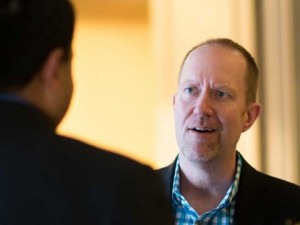Your #Career : 5 Foolproof Tips To Make Your Mentorship Count…Mentoring Arrangements can Become a Waste of Time for Both Parties If you Don’t Take a Few Key Steps.
You took the first step and asked someone to be your mentor. Congrats! Whether you chose this seasoned pro to help you hone specific skills or to give you long-term career advice, it’s up to you to drive the relationship—so you get the most out of the time you’re both putting in.
[fusion_builder_container hundred_percent=”yes” overflow=”visible”][fusion_builder_row][fusion_builder_column type=”1_1″ background_position=”left top” background_color=”” border_size=”” border_color=”” border_style=”solid” spacing=”yes” background_image=”” background_repeat=”no-repeat” padding=”” margin_top=”0px” margin_bottom=”0px” class=”” id=”” animation_type=”” animation_speed=”0.3″ animation_direction=”left” hide_on_mobile=”no” center_content=”no” min_height=”none”]
“When you work with a mentor who can give you a lay of the land, support you when you’re faltering, and help keep your goals on track, you’ll get from A to B faster and more intelligently because you learn how to avoid common pitfalls and stay dedicated to your process,” says Gerard Adams, cofounder of media company Elite Daily, entrepreneur, and self-made millionaire.
Sounds like a pretty sweet deal, right? It’s a give and take, but with these tips, you’ll be able to maximize your mentorship and jumpstart your career.
1. PUT ASIDE YOUR EGO
If you’re the type of go-getter who’s upping your job game with the help of a mentor, you’re probably a motivated, driven and accomplished person yourself. But in this role, you’ve got to remember that you’re the student, and he or she is the teacher. So relax and allow yourself to be taught. That means respecting your mentor’s opinion, considering everything they say carefully, and ultimately, taking your ego down a notch.
“In mentorship, it’s important to be a good listener,” says Adams. “Many people don’t take constructive criticism well and can’t manage their ego that tells them they’re always right. Know that you are always going to be learning, and be willing to listen when advice is brought to the table.”
Like this Article ? Share It ! You now can easily enjoy/follow/share Today our Award Winning Articles/Blogs with Now Over 2.5 Million Growing Participates Worldwide in our various Social Media formats below:
FSC LinkedIn Network: (Over 15K+ Members & Growing !) www.linkedin.com/in/frankfsc/en
Facebook: (over 12K) http://www.facebook.com/pages/First-Sun-Consulting-LLC-Outplacement-Services/213542315355343?sk=wall
- Google+: (over 800K)https://plus.google.com/115673713231115398101/posts?hl=en
- Twitter: Follow us @ firstsunllc
educate/collaborate/network….Look forward to your Participation !
Continue of article:
2. SET A CONSISTENT MEETING SCHEDULE
Chances are, your mentor is extremely busy. He or she hasn’t gotten where he or she is by slacking off. So be respectful of your mentor’s time by scheduling your meetings in whatever way is most convenient for him or her.
“Students can get the most out of their mentorships by setting a consistent meeting schedule with their mentors and using every minute of those meetings to their best interests,” says Greg Stahl, vice president of marketing at Varsity Tutors, a live learning platform based in Boston. “These check-ins could be in-person, via Skype, over the phone—whatever allows the mentorship to fit seamlessly into the mentor’s schedule.”
3. KNOW THE RIGHT QUESTIONS TO ASK
Too often, and especially in mentorships with younger people, mentees know they want a mentorship but don’t know what they want out of it. That’s why coming to each meeting with guiding questions, based on what you want to accomplish, is key to a successful relationship—plus, it saves you from wasting time figuring out what to focus on.
“If you’re still a student, questions could relate to how you can prepare for your career path, how to balance remaining schoolwork with making decisions about your postgrad plans, how to effectively make these decisions, and so on,” says Stahl.
You should also learn why your mentor has made certain professional decisions. It’s helpful to become familiar with your mentor’s career arc and how he or she has achieved professional success—but it’s even more useful to understand why your mentor made such decisions. That way, you can apply a similarly discerning thought process to your own professional choices.
“Try to learn how their mind works,” says Susan R. Meyer, president of Life-Work Coach in New York City.
4. FOCUS ON THE OUTCOMES
Create a series of short-term and long-term goals—and check in periodically with your mentor so you can track your progress. This will not only help keep you focused and accountable, but it will also show your mentor that his or her advice is valued.
“Demonstrate that their investment of time, effort, and expertise in you was worth it via a disciplined focus on key milestones you commit to,” says David Nour, CEO of The Nour Group, a consulting firm based in Atlanta. “They have to see you improve, grow, and become a stronger professional. Otherwise, they’ll lose patience and you’ll take the wind out of their sail to want to continue to help you.”
5. BE GRATEFUL AND KEEP IN TOUCH
Usually, mentors don’t owe you anything. They’re taking you under their wing under the goodness of their hearts (and they see potential in you). And their investment in you can and often does lead to real results.
Ashley Hill, CEO of College Prep Ready, a Cincinnati-based scholarship firm, remembers how influential her mentor was in finding career success (she was a graduate assistant in her biological sciences degree program).
“She took time after class and outside of office hours to help me understand the class material as well as give career guidance,” says Hill. “This relationship led to a $10,000 internship and allowed me to discover my love for research. As a result, I am in a very fulfilling career that is using those research skills to assist students in leveraging talents and achievements to find and win merit scholarships to pay for college.”
Someday, you may find the roles reversed, so it’s important to be grateful, especially after you’ve found success.
FastCompany.com | JON SIMMONS, MONSTER | 08.26.16 5:00 AM
[/fusion_builder_column][/fusion_builder_row][/fusion_builder_container]


